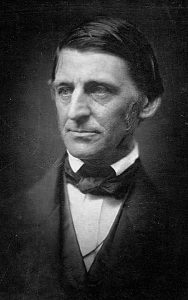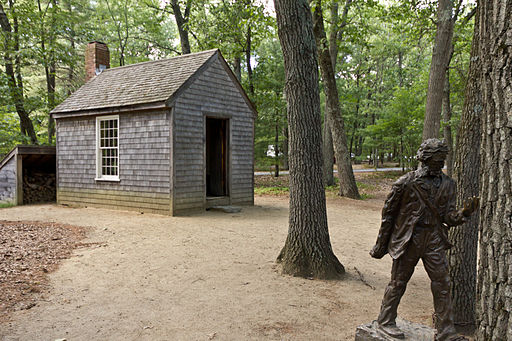Ralph Waldo Emerson

During the nineteenth century, America continued to establish its own identity separate from Europe. Various reforms took place, including prison improvement, abolitionism, women’s rights, and the Second Great Awakening.
America worked to better itself as a nation and overcome any of its shortcomings. As Americans determined the national rhetoric for the budding country, the notion of individualism characterized the climate of change. Individualism, which falls directly under the umbrella of transcendentalism, stressed that we are each responsible for bettering ourselves and our community. Many leaders of this movement emphasized reliance on ourselves and the environment to answer our questions, instead of God, scripture, or previous philosophers. Ralph Waldo Emerson’s writings pushed for these ideals, asserting his belief that humans contain an innate sense of right and wrong independent from religious views. Ultimately, Emerson’s writings became a key player in helping America create its own distinct literary movement during the nineteenth century.
Henry David Thoreau
Henry David Thoreau was born into the lower economic status, but because of his natural intelligence, his family chose him to attend Harvard University. This is where he met the famous transcendentalist philosopher Ralph Waldo Emerson. It was in 1836 when the two transcendentalists met. Emerson would later become Thoreau’s good friend and mentor. Thoreau, looking up to Emerson, would be inspired by his transcendentalist ideals and would start his own works inspired by Emerson’s original thoughts.
